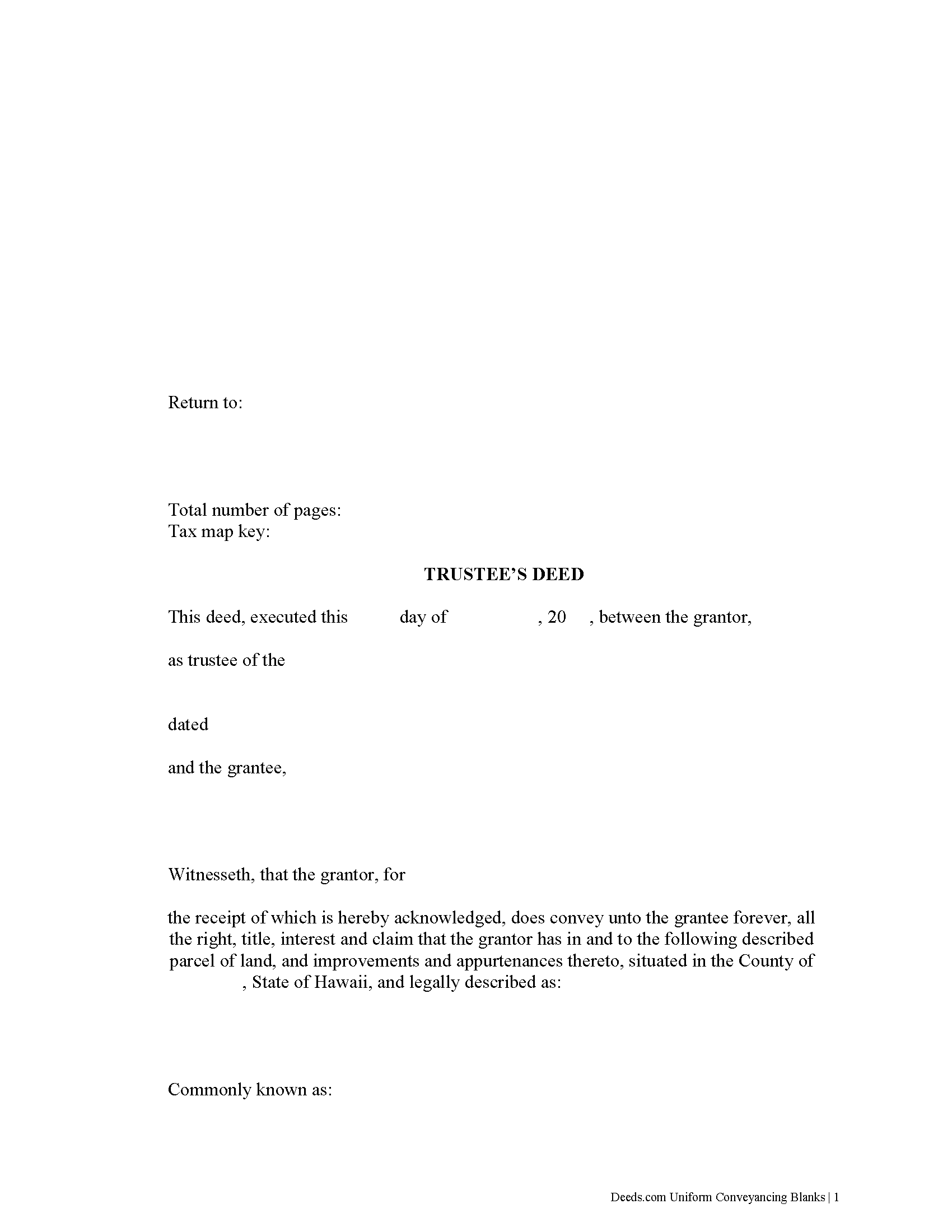Download Hawaii Trustee Deed Legal Forms

Hawaii Trustee Deed Overview

Unlike other instruments of conveyance, which are named for the warranties of title they contain, the trustee's deed is named after the person executing the deed. Trustees use a trustee's deed to transfer real property out of a trust. A trustee's deed for use in trust administration is different from a trustee's deed upon sale, used after foreclosure of real property under a deed of trust.
The trustee of a living trust is appointed by the trust's settlor in the trust instrument. The settlor is the person funding the trust with assets (in this case, real property). Since a trust cannot hold title to property, the trustee acts as an authorized agent of the trust and holds title to the trust's assets. Under direction from the settlor, the trustee can sell real property out of the trust.
A basic trustee's deed conveys title in fee simple to the grantee in exchange for consideration (something of value, usually money). It must meet the same requirements for form and content as other conveyances affecting real property, and it contains additional information about the trust. The deed names the trustee as the grantor and states the trust's name and date of establishment (the date of the trust instrument's execution). A trustee's deed requires a legal description of the subject real property, as well as a reference to the prior deed under which the trustee was granted title.
Each acting trustee must sign the deed in the presence of a notary public for a valid transfer. The notary may require a witness signature in addition if the trustee is not personally known to the notary.
In many states, recipients of a trustee's deed require a certificate of trust. A stand-in for the trust instrument, which is not a matter of public record, the certificate is proof that the trust exists and that the trustee has the authority to authenticate documents and act on behalf of the trust. In Hawaii, however, persons dealing with a trustee are protected under the Uniform Trustees' Power Act (Haw. Rev. Stat. 554A:7).
Hawaii is one of a few states with a dual recording system. Submit the deed for recording in either the Land Court (Torrens) or the Regular System (or both). The Bureau of Conveyances maintains records for both systems. Check which system to record in by consulting the prior deed, and consult a lawyer with any questions.
Trust law can quickly become complex, so consult an attorney with any questions regarding your unique situation.